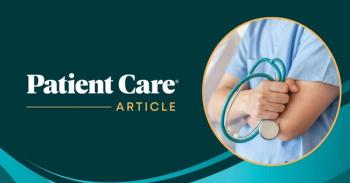Reducing Risk of Severe Dyspnea-related Psychological Trauma in COVID-19 Survivors
Prolonged "air hunger" induced during mechanical ventilation for severe COVID-19 infection can be eliminated by a change in standard of care, a new paper suggests.
A change in ventilation and medication strategies may help avoid "air hunger" and the resulting psycholgoical trauma for survivors of severe COVID-19 treated for acute respiratory distress syndrome (ARDS) with mechanical ventilation,
“With the likelihood that hundreds of thousands of dyspneic patients around the world during this pandemic will require low tidal volume mechanical ventilation, we are concerned about the potential for mass psychological trauma among the survivors, induced by untreated air hunger,” the authors wrote.
Research has shown that among ICU survivors, the experience of air hunger is often associated with post-traumatic stress disorder (PTSD).
Beware the cure
The lung-protective ventilation that is a key therapeutic strategy in sustaining patients with COVID-19-induced ARDS, is also a "recipe" for air hunger, a feeling of severe breathlessness and the most uncomfortable form of dyspnea, according to study authors led by Richard Schwartzstein, MD, chief, division of pulmonary, critical care, and sleep medicine at Beth Israel Deaconess Medical Center and professor of medicine, Harvard Medical School.
The authors point to research that demonstrates further injury to lungs already compromised by ARDS and respiratory failure when the size of breath from the ventilator is too large or pressure used for lung inflation is too great. When low breath sizes are used in an effort to mitigate additional lung damage, however, the sensation of air hunger is made much worse, said study authors in a
In looking at recent reports of patients with severe COVID-19 infections admitted to ICUs in Seattle, as well the authors’ own ICUs at Massachusetts General Hospital and Beth Israel Deaconess Medical Center, the authors found that dyspnea was a very common presenting sympotm prior to intubation and mechanical intubation, in 88% and 91% of patients, respectively.
Clinicians "consistently and subtantially" underestimate dyspnea compared to patient report, say authors in the paper, because it is very difficult to estimate using observed signs.
Paralysis, sedation do not reduce dyspnea
There is also a "persisten mistaken notion" that the paralysis resulting from neuromuscular blockade to control patient-ventilator interaction will reduce dyspnea; the once-popular theory has been disproven, the authors point out. And while observable signs of dyspnea are not always pronounced, paralysis eliminates them as well as the patient's ability to communicate.
And, while sedatives often are used to relieve patient agitation during intubation for ventilation, sedation must not be confused with an anti-dyspnea effect.
Schwartzstein and colleagues believe that the problem is solvable, however, using an accessible remedy with with most physicians are familiar: opiates. “Opiates are the most reliable agent for symptomatic relief of air hunger – they seem to act both through depression of ventilatory drive and ascending perceptual pathways, as they do with pain,” the authors write.
They point to published evidence of this effect of opiates, inlcuding studies showing that use of IV morphine provided "profound relief of experimentally-induced air hunger" and also to meta-analyses of ARDS studies that suggest patients in are not receiving the "best known therapy to relieve dyspnea."
The autthors conclude the paper this way:
"During this crisis, we urge physicians providing critical care to attend to the possibility of extreme air hunger in ventilated COVID-19 patients with ARDS, and to consider the known pharmacologic benefits of opiates in their management."
Newsletter
Enhance your clinical practice with the Patient Care newsletter, offering the latest evidence-based guidelines, diagnostic insights, and treatment strategies for primary care physicians.
































































































































